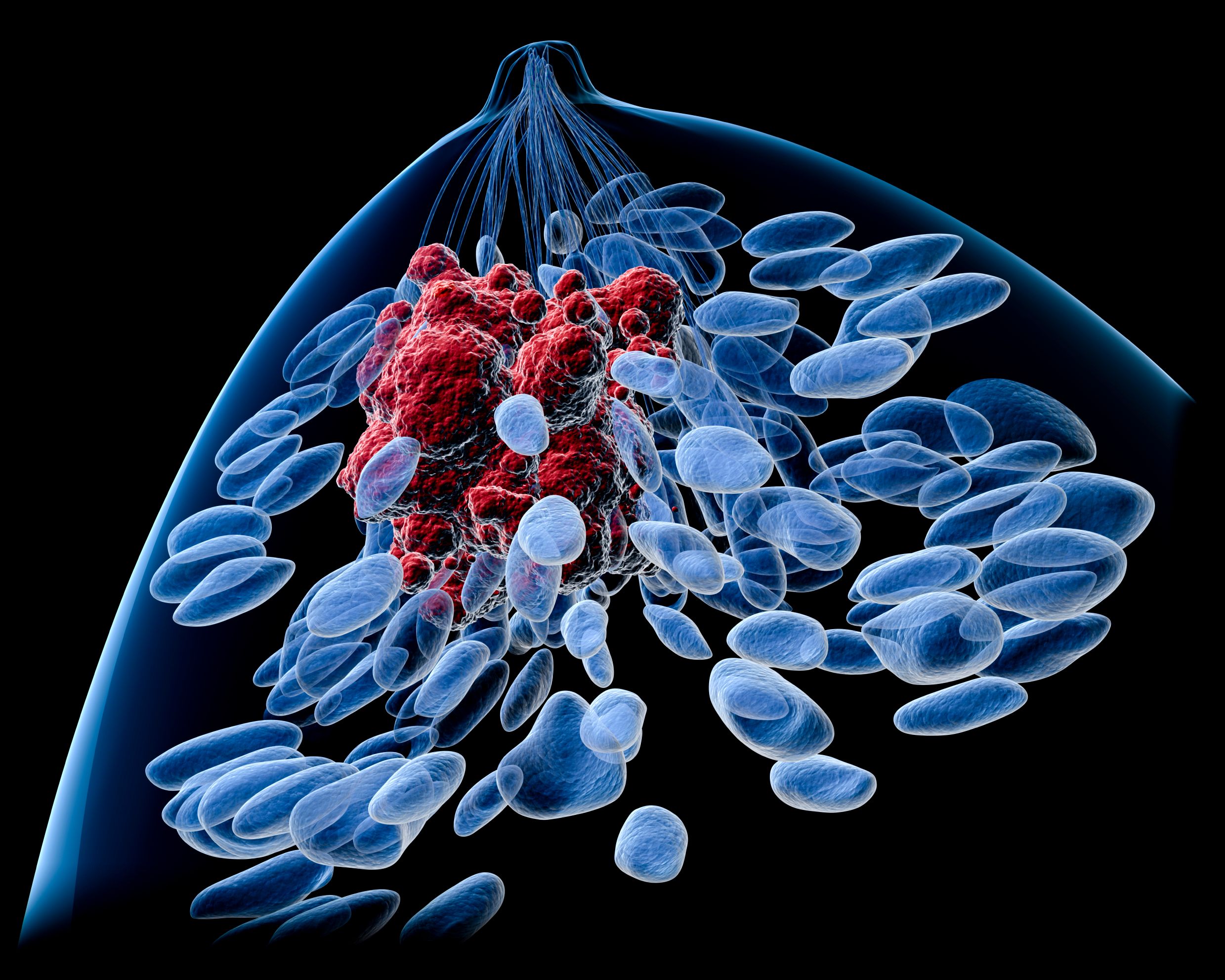Diagnostic Delays in Younger Women With Breast Cancer Are Mostly Patient-Related
Young patients with breast cancer were more likely to be the reason for diagnostic delays vs system delays, partly due to less concern for their symptoms.
"Better awareness on both the public and the practitioner end is needed regarding what is a concerning symptom, and that if things persist or change or get worse, follow-up is important," according to lead study author Katherine Fleshner, MD.

Patient delays were the most common reasons for diagnostic delays in young women with breast cancer, according to survey results that were presented during a press briefing ahead of the 25th Annual American Society of Breast Surgeons Annual Meeting.1,2
Patient delays were 31.7% of the cause for diagnostic delays compared with 10.7% that were due to system delays. Additionally, predictors of patient delays in this patient population included painful lumps and having a first-degree relative with breast cancer.
Specifically, the median number of weeks that patients waited before seeking care was 2.0 weeks. Reasons for patient delay included patients not being worried about their symptoms (48.5%), waiting to see if it went away (32.9%), someone reassuring them their symptoms were not serious (6.9%), difficulty accessing timely care (6.4%), other priorities (3.6%), and fear (1.7%).
The wait time to a patient’s first doctor’s appointment was mostly less than 1 week, followed by 1 to 2 weeks, 3 to 4 weeks, and more than 4 weeks.
“Many of the reasons for patient delay had to do with patients not being aware that what they were experiencing could be related to malignancy,” lead study author Katherine Fleshner, MD, a postgraduate general surgical fellow of the University of Calgary in Canada, said in a press briefing ahead of the meeting. “The diagnostic journey overall can be complex in this population, mostly because there is a large percentage of benign breast findings in young women. Better awareness on both the public and the practitioner end is needed regarding what is a concerning symptom, and that if things persist or change or get worse, follow-up is important.”
Younger patients with breast cancer generally present differently than older patients and have more aggressive disease phenotypes. For example, younger patients are symptomatic and are often diagnosed at later stages when the disease has metastasized.
“We do know that this is a distinctly different population of patients compared with the typical postmenopausal ones who are diagnosed through screening,” Fleshner said.
Theoretical reasons for this are that younger women are not generally included in screening protocols, breast cancer is not often suspected, and there may be an element of diagnostic delay.
In the pan-Canadian study, young patients were defined as those who are younger than age 40 who present with newly diagnosed breast cancer, which Fleshner said is about 5% of all annual cases. Investigators sought to determine whether the diagnostic delay does exist in this younger patient population in Canada through the presentation of disease, the diagnostic process and timeline, and predictors of diagnostic delay.
Data were analyzed from a cohort of the Reducing the bUrden of Breast cancer in Young Women (RUBY) trial, which comprised patients 40 years and younger who had breast cancer and were enrolled at the time of their first meeting with a surgeon. Patients were prospectively recruited from 32 centers in the Yukon, British Columbia, Alberta, Saskatchewan, Manitoba, Ontario, Atlantic Canada, and Quebec regions, and 5 surveys were distributed to them via email and completed between 2015 and 2022. Follow-up was conducted over 5 years.
The surveys comprised questions on demographic data, personal history, medical history, how they came to their diagnosis, wait times, and their perception of their diagnosis process overall.
To define the diagnostic delay, investigators evaluated the time between the first symptom detected by the patient to the first contact with a health care provider (patient delay), first contact with the provider to first doctor’s appointment plus or minus investigations ordered (system delay), and also time from the first appointment to breast cancer diagnosis (system delay). Patient delay was defined as greater than 4 weeks, or 1 menstrual cycle, from onset of symptoms to first contact with a health care professional, while a system delay, was defined as more than 3 weeks from time of presentation to care to time of first imaging test, which was based on Canadian Partnership Against Cancer guidelines.
A total of 1148 patients were included on the study. The median age was 37 years (IQR, 33.9-39.0), most were Caucasian, and 43% were reported being otherwise healthy. A total of 36.8% of patients had a first-degree relative with cancer. Eighty-nine percent of patients had symptoms as their first detection of cancer—77.3% of whom had a palpable mass—followed by screening (8%), routine clinical breast cancer (2%), and incidental finding (1%). Reported symptoms included a painless lump (n = 516), painful lump (n = 208), multiple symptoms (n = 197), breast pain (n = 36), skin/nipple changes (n = 34), and nipple discharge (n = 27).
References
- Fleshner K, Yang F, Isherwood S, Xu, Quan ML. Diagnostic delay among young women with breast cancer. Presented at: 25th Annual American Society of Breast Cancer Surgeons Meeting; April 10-14, 2024; Orlando, FL.
- Young Women Frequently Delay Breast Cancer Assessment. The American Society of Breast Surgeons. News release. Published April 11, 2024. Accessed April 11, 2024. https://tinyurl.com/yc25bzp7
2 Commerce Drive
Cranbury, NJ 08512
All rights reserved.